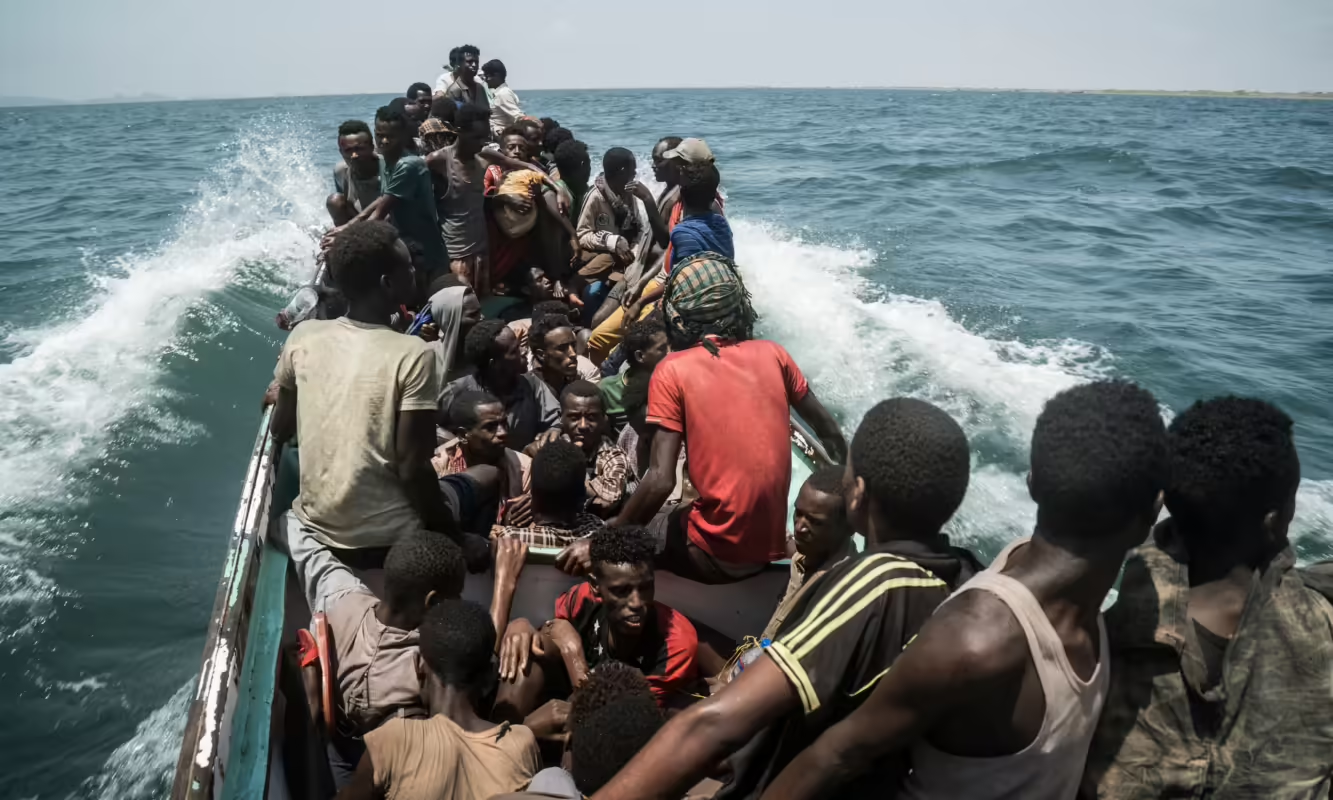Migration along the Eastern Corridor, a key route connecting East Africa and the Middle East, remains a dangerous journey for thousands seeking better opportunities or fleeing adverse conditions. This route, which primarily involves travel from countries like Ethiopia, Somalia, and Eritrea to the Arabian Peninsula, is characterised by numerous dangers, including human rights violations by various actors such as the Yemeni government. It’s one of the busiest and most unsafe migration routes globally. Migrants face extreme hardships in their pursuit of safety, economic stability, and a brighter future. Their journeys often involve risky desert crossings, difficult sea voyages, and encounters with armed groups. Migrants on this route are highly vulnerable to human trafficking and smuggling networks subjecting them to severe abuse, extortion, and inhumane conditions. Many are held in detention camps where they face physical and psychological torture.
The journey through the Eastern Corridor involves crossing vast deserts and dangerous sea routes. Migrants face dehydration, starvation, and exposure to extreme weather conditions. The lack of food, water, and medical care makes this journey particularly deadly. Often travelling without proper documentation, migrants are left at the mercy of traffickers and smugglers. The absence of legal protection and the difficulty in accessing legal aid expose them to continuous exploitation and abuse. Additionally, migrant women and children are especially vulnerable to sexual and gender-based violence. Reports indicate that many face rape, sexual assault, and other forms of gender-based violence during their journey.
Yemen, a major transit country on the Eastern Corridor, presents significant challenges and threats to migrants.The Yemeni government has been implicated in severe human rights abuses against migrants. Yemeni government forces have been reported to detain migrants arbitrarily, subjecting them to overcrowded and unsanitary conditions, physical abuse, and lack of access to basic necessities such as food, water, and medical care. Such conditions violate international human rights standards and exacerbate the suffering of already vulnerable individuals.
Both state and non-state actors in Yemen exploit migrants for labour, often under brutal conditions. Migrants are sometimes forced into hard labour without pay, and failure to comply can result in severe punishment or death. The overall environment in Yemen is one of extreme danger and exploitation for migrants.
Yemen’s violation of human rights extends beyond mistreatment within its borders. The Yemeni government has also documented forcibly returning migrants to their countries of origin under life-threatening conditions, a practice known as “refoulement”, which contravenes international human rights laws and conventions. These returns are often conducted without due process, ignoring the migrants’ pleas for asylum or protection from the dangers they fled. Consequently, many migrants find themselves back in environments of conflict, persecution, or extreme poverty, facing the same or even greater dangers than those they initially escaped. This forcible repatriation underscores the need for international intervention to prevent further breaches of migrants’ rights and ensure that those seeking refuge are not returned to harm.
There is a pervasive lack of accountability for human rights violations against migrants in Yemen.The Yemeni government operates with impunity, making it extremely difficult for migrants to seek justice or protection. The cumulative effect of these challenges and human rights violations is devastating. Migrants often face physical and psychological trauma that leaves lasting scars. Families are separated, lives are lost, and the dreams of many are shattered along the way. The international community has a moral obligation to address these abuses and provide protection to those who are most vulnerable.
The situation of migrants on the Eastern Corridor underscores the urgent need for coordinated global action to protect human rights and ensure safe and humane migration pathways. Only through collective effort can we hope to alleviate the suffering and uphold the dignity of those forced to undertake these perilous journeys.
The Eastern Corridor remains one of the most dangerous migration routes in the world. Migrants face severe challenges, including human trafficking, extreme physical hardships, and gross human rights violations by the Yemeni government. It is crucial for the international community to shine a light on these issues, hold perpetrators accountable, and provide support to migrants in their pursuit of safety and dignity.

